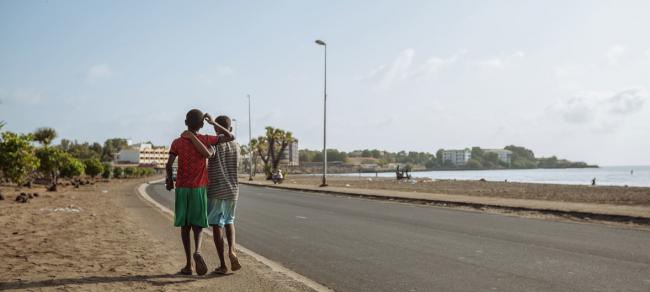
Migration surge leaves children stranded, begging on Djibouti’s streets
New York, Jan 16 (IBNS): Begging, scrubbing cars or selling themselves on the street for sex are a way of life for many children in Djibouti, according to a survey released by the International Organization Migration (IOM) on Tuesday.
Conducted in Djibouti City, the country’s capital where most of the street children live, the survey enumerated the minors to understand how and why they end up on the streets while also identifying their priority problems.
The Report on Street Children Living in Djibouti, diagnoses the children’s living conditions and augments recent IOM reporting on “the robust movement of irregular migrants” through the Red Sea region, adding context to the disturbing situation.
In 2018, IOM recorded that 150,000 migrants arrived in Yemen, 20 per cent of whom were minors, exposed to dehydration, illness and human rights abuses, including trafficking.
One 12-year-old boy walked for one month and two days from Ethiopia to Djibouti. Four years later he spoke to IOM.
“I survived on the food that was given to me by strangers”, he said. “I thought there would be more work in Djibouti. I am willing to do anything here – wash cars, clean windows – but I rarely find any jobs”.
Djibouti is a major transit location for those migrants, especially from Ethiopia, who seek to cross over to Yemen, and ultimately to the Arab Peninsula.
Many find themselves trapped, unable to get to the coast through one of the driest and hottest places on earth.
The study amplifies the voices of under-age-17 minors living on the street – a total of 1,137 children, including 633 under age nine, including 195 girls; and 504 children from ages 10 to 17, 64 were girls.
“I came here with my mother, but when she moved on to work in Saudi Arabia, I stayed here”, a 17-year-old girl said.
“I have not seen her in eight years” she continued. “She wanted to bring me with her but I was too scared to go. I wash cars to make money, but I dream of being a pilot one day and meeting my mom in Ethiopia. I don’t remember Ethiopia, but I would like to go back one day.”
Reaffirming the Government’s commitment to tackling the issue head on, Moumina Houmed Hassan, Minister of Women and Family Affairs, listed the solutions of creating a coordination platform, reinforcing and developing reception facilities, establishing an identification system, defining basic minimum service and developing a national protection strategy.
Funding for the study was provided by the European Union through the EU-IOM Joint Initiative for the Protection and Reintegration of Migrants in the Horn of Africa.
Muse Mohammed/IOM
Support Our Journalism
We cannot do without you.. your contribution supports unbiased journalism
IBNS is not driven by any ism- not wokeism, not racism, not skewed secularism, not hyper right-wing or left liberal ideals, nor by any hardline religious beliefs or hyper nationalism. We want to serve you good old objective news, as they are. We do not judge or preach. We let people decide for themselves. We only try to present factual and well-sourced news.







